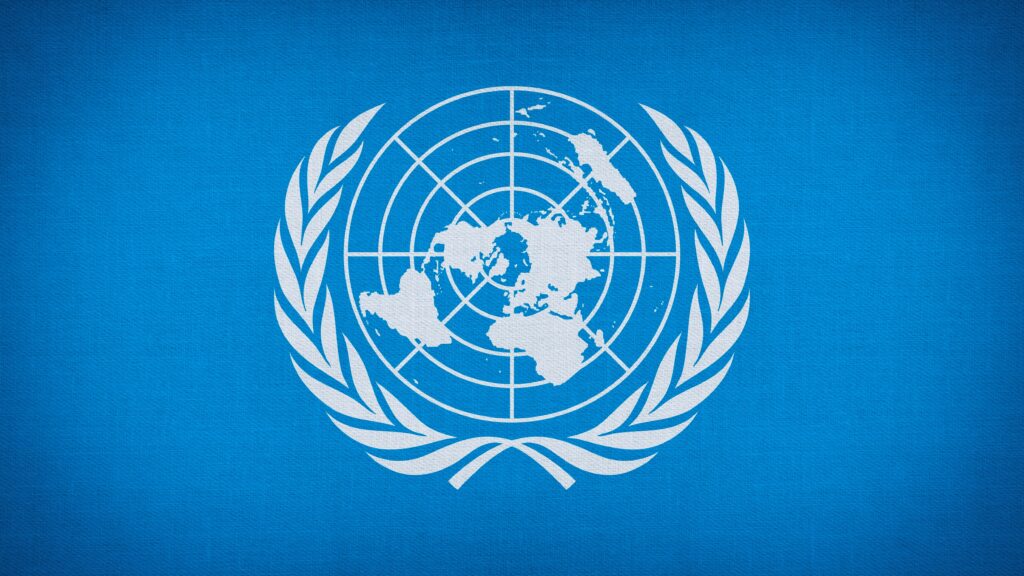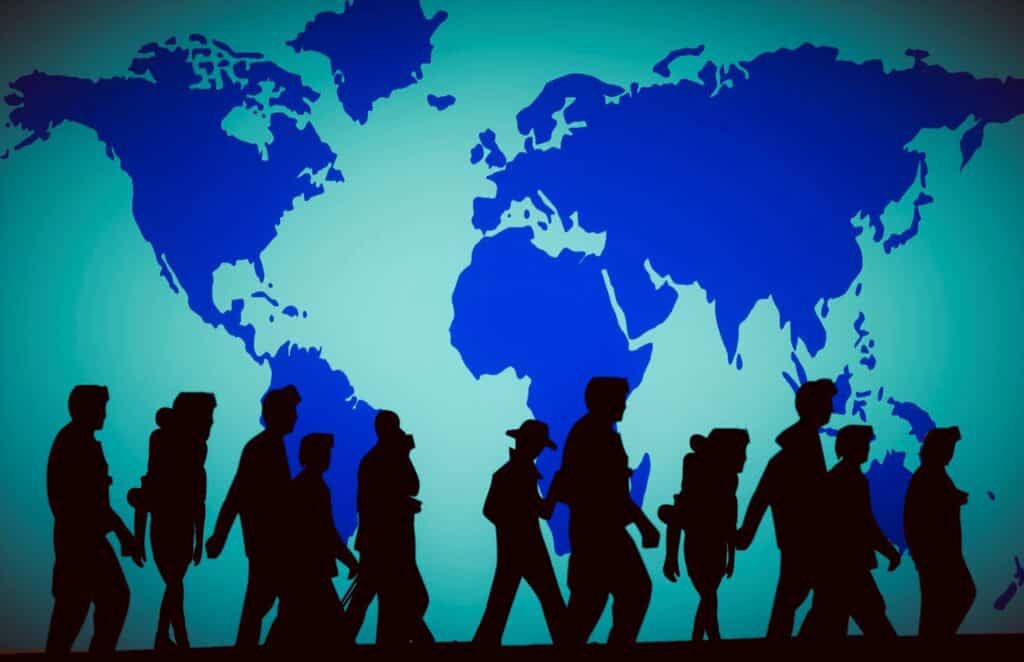Population Control: Definition and Outline

According to Collins dictionary, population control is a policy attempting to limit the growth in population numbers. Countless countries used this practice under the guise of ”the greater good”. However, as we shall see, there is nothing ”good” about coercing people to reproduce or not to reproduce.
In this article, we are going to:
- Have a look at how governments have been justifying population control
- Understand why such policies are the worst infringement of human dignity
- Learn about the different types of population control tactics
- Provide more humane alternatives to cruel population policy measures
Population Control: How They Have Been Getting Away With It
In this section, we are examining a few of the most common justifications for population control practices.
It is legal and therefore legitimate

Many people believe that laws hold legitimacy just because they are – well, laws. But when was making something legal ”right”? Legality doesn’t confer legitimacy. That is, the fact that something is legal does not necessarily mean it is right to do. This strangely reminds me of The Purge movies. Would it be okay to start killing random people if the government legalised it? Therefore, legalising something doesn’t make it right. By the same token, illegalizing something doesn’t make it wrong. In the past, compulsory sterilisation was legal while women voting in elections was not. Go figure.
It is a necessary measure for a country’s survival

Some countries like Poland and Hungary claim that there aren’t enough people in the country. They argue that increasing birthrate is a necessary means of survival. However, the root rof the ”problem” is that both countries are part of the EU and its free movement policy. If people are able to move freely across an entire continent, what else do you expect, especially when there are greater economic prospects in richer countries?
Politicians must stop scapegoating human life for ramifications of their own political decisions. Human life is not an easy fix for whatever political inconveniences, especially when reasonable alternatives are a real possibility.
People move out of the above-mentioned countries for reasons other than banknotes being greener on the other side. Human rights abuse, lack of due process and rife corruption are also strong motives. Transparency International mentions that Poland’s civil liberties score ”declined and its corruption perception index score dropped to 56, as the government cracks down on activists through insult laws and severely limits media freedom.” The report also describes Hungary as one of several countries at their lowest CPI score since 2012.
How do politicians stop people fleeing persecution and economic misery, leaving their home countries almost vacant?
Ask the unfortunate few who stayed to reproduce!
It is good for the economy and quality of life

If fewer people meant a better economy and a more comfortable life, countries with scarce populations would not be complaining — unless complaining about comfort is the new fashion.
Decreasing populations by draconian measures, like one-child or two-child policies, is not going to solve the problem, which doesn’t even exist.
How so?
An overpopulated place is an overcrowded place. That is, there is little space for more people to live in. This may make sense until you realise that countries that implement depraved population control measures, like China and India, are not even in the top 10 of the most densely populated in the world. According to the latest data on space to population ratio, India and China ranked 30th and 82nd respectively.
The ideal birth rate is not going to solve demographic ”challenges”, and governments could instead focus more on effective use of space and even distribution of populations as more humane ways to ensure the well-being of their citizens.
Legal Slavery: Why We Must Abolish Population Control
It violates the right to life

If you stop taking population control for granted, you will realise that it fundamentally violates article 3 of the Universal Declaration of Human Rights (click here to download a PDF copy), which states that ”everyone has the right to life, liberty, and the security of person.”
In purely biological terms, If you are endowed with life, you are supposed to fulfil the only reason you exist for: giving life. This ensures the survival of the human race, and the same principle applies to every living organism on the planet. If you are denied giving life, you are denied the meaning of your entire existence since giving life is why you were given one in the first place. You are denied what every living species is entitled to have by virtue of its very existence.
The idea of a government having the power to deny us the most basic of all rights, without the existence of which all other rights cannot be enjoyed, is sickening. How can we talk about freedom of speech while our right to life is violated?
It violates the right to privacy

Population control policies also violate Article 12 of the Universal Declaration of Human rights, which states that ”no one shall be subjected to arbitrary interference with his privacy, family, home or correspondence, nor to attacks upon his honour and reputation.” In a previous article, we mentioned how even animals should have a right to bodily integrity. In the UK, Article 8 of the Human Rights Act 1998 includes the right to body as part of private and family life rights.
Just like a country is sovereign over what happens within its borders, you are sovereign over what happens to your body and what you do with it. You may not see chains around your ankle, but it doesn’t mean you are free. Means of coercion nowadays are more subtle and disguised under the benign ”helping hand”, and controlling your body’s life cycle is the worst kind of coercion.
It dehumanises human dignity
The fine line between humanity and bestiality

Population control policies literally treats humans like animals. This is not to say that it is okay to mistreat animals. Quite the contrary, by advocating rights of humans, we are automatically advocating rights of animals. We are using the simile for clarity.
Population control dehumanises humans because governments use identical demographic policies with animal populations, including controlled breeding and selective breeding — you see where this is going, don’t you?
I know you do. It is quite obvious.
Not so long ago, many governments introduced certain measures for the ”betterment” of the human race. This included allowing only certain ”stocks” of humans to intermarry to preserve their ”purity”, encouraging people of superior status and intelligence to mix only with those of similar status and abilties, and forcibly sterilise those with ”undesirable” traits.
The remnants of darkness

The remnants of such practices still live with us today: most governments around the world may have stopped selective breeding, but they still exercise its ”next of kin”, controlled breeding. Unfortunately, animals are not so lucky as they still undergo both processes at the expense of their health. Only last month, Norway banned the breeding of bulldogs because it appears that their forced genetic isolation has led to serious health complications. This is a typically ”purebread” problem and yet another proof that nature, which is smarter than humans because it invented them in the first place, retaliates when megalomaniacally selfish fantasies obstruct its course.
Imagine what the fate of humans would have been like if the dark forces had succeeded in convincing people of such pseudoscience, and remember that the ”other half” of the dark practice, population control, is still ongoing even in countries that champion personal freedoms like France, Germany and Australia. China and India provide much more extreme examples of population policy.
In the next section, we will compare between the measures adopted in different countries and see whether some of them are a lesser evil than others.
Population Control Policy: Soft vs Hard tactics
Soft tactics

Most governments incentivise their populations to reproduce through financial gain prospects, less expenses (e.x. cheaper travel), and more spare time. In crude terms, governments bribe people to have babies.
As audacious as the idea that governments act on the belief that they can have a say on an individual’s life cycle, some people abuse such financial aids by spending them on themselves instead of their children. For such individuals, their babies are cash cows.
France, Australia, Germany, Japan, South Korea and Spain are a few of the countries that recently adopted soft population control policies.
Hard tactics

As we fairly alluded to in the previous section, many governments committed unthinkable atrocities in the name of the betterment of their countries. However, most of them dropped such eugenic policies after the end of World War 2.
Unfortunately, many fellow humans out there are still falling victim to the depravity of such measures. India alone was responsible for 37 percent of the world’s female sterilization in 2011. I am not sure about you, but my stomach turns just by writing about this. What is as despicable is that some self-proclaimed liberal democracies like the United Kingdom supported the horrific population control measures India implemented against its citizens. You can read more about India’s dark population control policies here.
China is another notorious example of such appalling practices. Forced kidnappings, abortions and selling newborns to orphanages are a few of the horrors the Chinese people suffered under a brutal one-child policy.
Soft vs Hard tactics: Is there a lesser of two evils?

It is quite obvious that soft population control meausures are the lesser evil, but it doesn’t make them less wrong. Bribing people to reproduce stems from an attitude that governments can have a say over your reproductive cycle. Aren’t government family incentives another form of human trafficking? Isn’t the government the benefactor, the parent the beneficiary and offpsring the commodity? For a lot of, if not all, governments, that’s all what human life is; a commodity to be used in wars and factories, and to be reproduced when they decide there is a shortage of it.
Parents, though beneficiaries, are also victims of government trafficking. The promise of generous sums of money induces them to have intercourse and reproduce for the needs of the system. This is highly analogous to sex workers in De Wallen red light district. When fantasising babies, politicians come knocking on couples’ windows with one hand and swinging the carrot on the stick with the other.
How about those who decided to prioritise their career over having children? Why don’t they get ”childless” support? Don’t they contribute to society, too, or does the government recognise contribution only as long as it meets its needs? Aren’t they the ones who work hard to pay the taxes used to support child rearing? Shouldn’t there be incentives for them, too?
As for hard population control policies, it is quite obvious that they violate every single concept of human dignity. The international community must condemn, sanction and stop what countries like China and India are committing against humanity. Both countries are signatories to the Universal Declaration of Human Rights. What’s the point of signing the declaration if they don’t abide by it?
Final Word On Population Control: Possible Alternatives

The world at large is not demographically challenged in any way. It starts becoming a problem when you look at the demographics within each country’s borders. People in the past did not have such highly interdependent economies as we do today. Globalisation increased and made the demand for mobility ever stronger, and increasingly unpredictable fluctuations of populations around the world is a predictable outcome.
A phenomenon of global magnitude requires a global strategy. Governments must stop pressuring, or worse, forcing local populations to attone for globalisation’s ”sins”. Instead, they could adopt a global strategy that facilitates global migration to counter-balance trans-national population imbalances.
A global migration lottery might just be the solution. One that is akin to the U.S. Diversity Immigrant Visa Program, but on a global scale. This will both ease the pressure off ”overpopulated” countries and provide the much needed population for ”vacant” ones. People must do this willingly. They can’t be coaxed or pressured into it. Otherwise, forced depopulation will not be so different from compulsory sterilisation.
On a final note, if there is a need to stabilise reproductive growth in certain places, it must be voluntary. People do not ask the government what they should eat, drink or how to be healthy. So, why should they ask to reproduce?
Humans are capable of independent thought. If the government thinks it knows best, why don’t it educate the population about what it knows? Instead of enforcing and scrapping population policies every so often, why not launch consistently vigorous awareness campaigns throughout the year?
Most people are capable of acting responsibly when you appeal to their reason. Politicians need to understand this — now more than ever.
